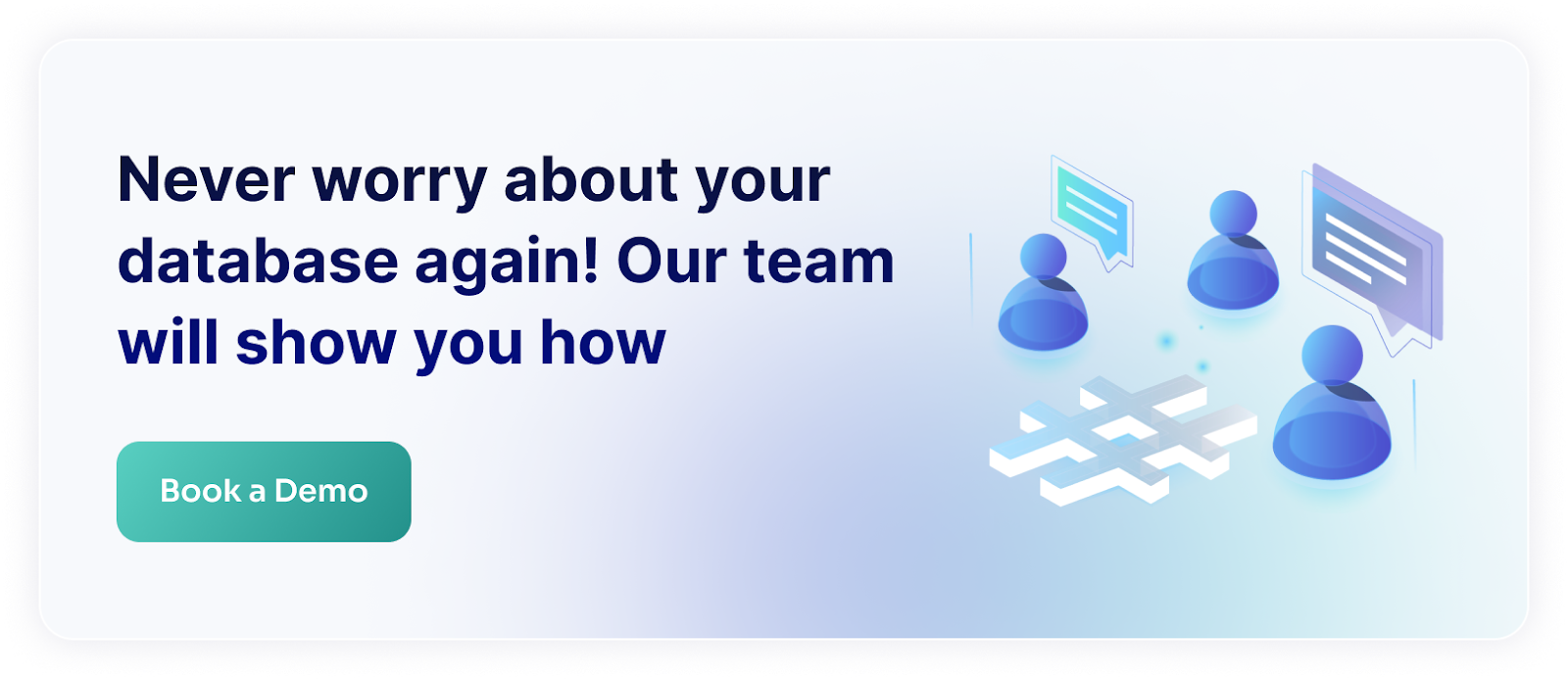DevOps engineers want to automate everything. This gives them many benefits - they don’t need to do any manual steps, they don’t need to speak to other teams and can prioritize their important tasks better. However, many organizations make automating things harder. They require synchronous communication between the teams, they limit access permissions, and they scatter ownership throughout various squads. In turn, DevOps engineers don’t own their databases and struggle to move fast with automation since they need to maintain the databases manually. What if they could own their database? What if they didn’t need to speak to other teams? Read on to understand how to achieve that.
Bring Tools That Automate Everything Around Databases
To make DevOps engineers true database owners, they need to be able to optimize all the queries that are executed in the database. They need tools that can show them what’s going on, analyze the source code, and indicate how to optimize it to make it faster. These tools need to bring confidence and reliability. There is nothing worse than finding bugs very late in the pipeline because it requires the DevOps engineers to start the implementation process from scratch. They need solutions that can analyze if their designs are correct, if the queries are fast enough, and if the schema changes won’t cause a data loss.
Metis covers all of that. Metis analyzes particular queries and provides actionable insights on how to improve the performance;

Metis integrates with CI/CD and analyzes the performance of the schema changes:

Metis analyzes the database designs and provides remarks about how to improve table schemas or indexes:

The next part of the work is achieving the highest database reliability and understanding whether the database works correctly. DevOps engineers need to have live database-oriented metrics showing the status of the databases.

Just bringing the data is not enough. We can’t expect the DevOps engineers to do the hard work of connecting the dots when these things can be easily automated. Metis takes care of all of that by reasoning about all parts of the SLDLC to explain how to make things better. Metis can hypothesize about indexes, query rewrites, and configuration changes, and can verify these ideas automatically:

Let DevOps Engineers Focus on the Hard Parts
The biggest time-wasters are meetings and synchronous communication. DevOps engineers automate their tasks and they can’t do that when many parties are involved. They need to work independently and own all the parts of their databases. Metis lets them achieve that by monitoring the database and alerting them whenever there is something wrong.

Not only does Metis provide alerts, but also gives the context and reasoning showing how to fix the issues.

Thanks to that, DevOps engineers can deal with the issues entirely on their own. They don’t need to talk to other teams or ask for details or metrics. They can fix everything independently.
Use Metis and Unleash the Power of Your DevOps Teams
DevOps engineers can own their databases. They can solve all the issues and deploy things fast. They need to have tools that can analyze database designs, query performance, and suggest improvements. These tools need to automate the reasoning and provide actionable insights instead of raw data. Metis handles all of that and lets the DevOps engineers own their databases and talk less with other teams. Use Metis and unleash the power of your DevOps teams.







